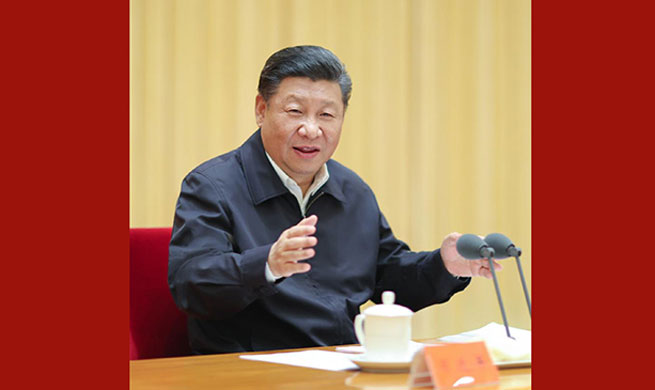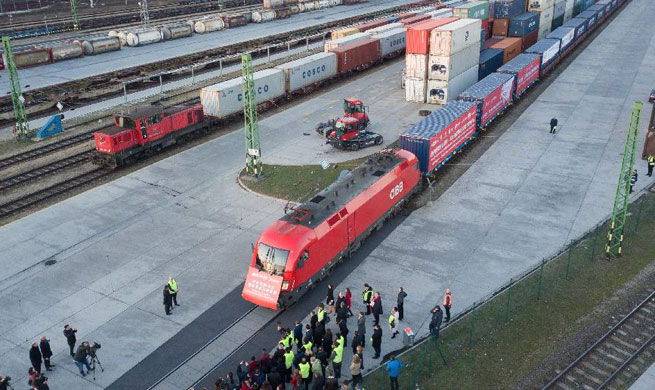BERLIN, July 5 (Xinhua) -- U.S. President Donald Trump has made an offer to German car makers to eliminate all barriers to trade in automotive products between his country and the European Union (EU), Handelsblatt newspaper reported on Wednesday night.
Richard Grenell, the U.S. ambassador to Germany, recently informed Volkswagen, Daimler and BMW during a secret meeting in Berlin that he had been tasked by Trump with finding a solution to the swelling trade conflict between the United States and EU. Towards this end, Washington was willing to consider mutual tariff elimination in automotive trade and reductions of non-tariff barriers in the industry.
Industry circles confirmed to Xinhua on Thursday that the high-level meeting had taken place but that "no deal" had been made yet. The meeting in Berlin was described as a "continuation of a dialogue" that had already started at the annual meeting of the German car association (VDA) on June 6.
Germany's federal government was made aware of the meeting and the proposals revealed there by Grenell in advance. Chancellor Angela Merkel and leading car makers in the country have repeatedly called for mutual tariff reductions as a means to repair strained transatlantic ties and help improve the export competitiveness of the U.S. economy. However, any elimination of trade barriers in the automotive sector would have to take place in the framework of a wider agreement on U.S.-EU industrial cooperation under World Trade Organization (WTO) rules.
According to the Handelsblatt report, during the talks at the U.S. embassy in Berlin, Grenell urged the attendant car makers and automotive parts suppliers to seize the "momentum" to escape the global protectionist spiral unleashed by the "America First" doctrine of Trump.
Earlier, Washington imposed punitive tariffs on steel and aluminum imports from the EU and threatened to double-down with steep new duties on the bloc's vehicle exports to the United States.
The proposal delivered by Grenell consequently marked a significant and surprising shift in tone from the White House which was widely seen in Germany as offering a potential way out of the current impasse between Washington and Brussels on trade. The share prices of German car makers and automotive suppliers listed on the DAX stock exchange rose significantly on Thursday in response to the report.
Any EU agreement to mutual tariff reductions in the automotive industry with the United States would require consensus among the bloc's 27 members. In spite of optimistic reactions in the German automotive industry, however, such a feat could prove difficult to achieve, given Trump's previously erratic foreign policies and abrupt abandonment of the Transatlantic Trade and Investment Partnership (TTIP) following protracted U.S.-EU negotiations.
French President Emmanuel Macron, in particular, has criticized the apparent disdain demonstrated by Trump in multilateral cooperation, as witnessed with regards to the Paris climate agreement, Iran nuclear deal, and U.S. steel tariffs. Rather than offering the United States a new industrial agreement at this point, he consequently called for the EU to remain firm in its unified opposition to unilateral policies and protectionism.
In May, EU heads of state already made an official proposal to Trump to enter into discussions over a comprehensive industrial tariff reduction agreement on the pre-condition that the bloc would be permanently excluded from U.S. steel and import tariffs. Trump rejected the offer and subsequently added insult to injury by announcing via Twitter that he was backing out of a hard-won joint G7 resolution to pursue mutual tariff reduction.
EU Commission President Jean-Claude Juncker is scheduled to travel to the United States in late July for an official meeting with Trump. The still-unresolved trade conflict between Brussels and Washington will hereby once again form the focal point of transatlantic discussions.













